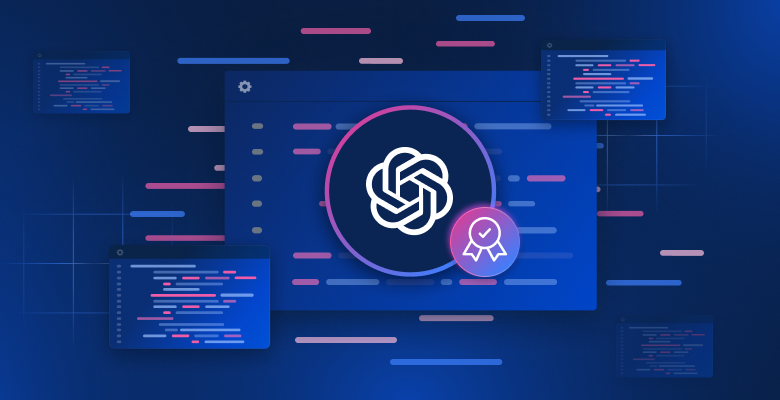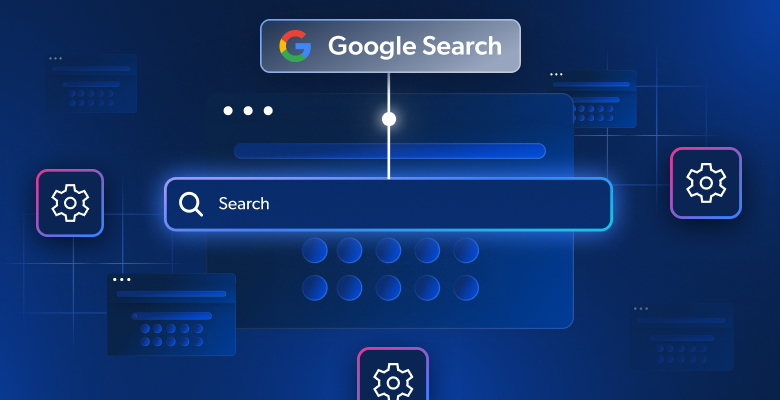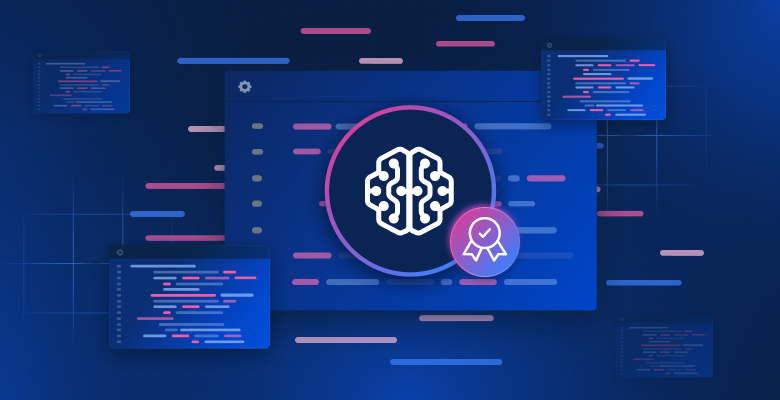If you want to scrape dynamic websites that use JavaScript, a popular recommendation is to use a browser automation tool. Such tools enable you to operate a browser using code and scrape the information that shows up in that browser.
There are a variety of browser automation tools to pick from, such as Puppeteer, Selenium, and Playwright. This article will focus on Playwright and Selenium, and review the tools based on the features they offer and their flexibility and performance, community support, browser support, setup, and ease of use.
In a hurry? Here is a quick comparison:
| Criteria | Playwright | Selenium |
|---|---|---|
| Setup and Ease of Use | Offers a straightforward setup, especially for users familiar with Node.js and JavaScript. | Can be complex to set up and configure, particularly for those new to web automation. |
| Features Offered | Provides advanced features like cross-browser support, headless mode, auto-wait mechanisms, and robust interaction capabilities. | Supports in-depth interaction with web elements, multi-language support, and integration with various testing frameworks. |
| Flexibility and Performance | High performance and efficient in resource utilization. Cross-browser compatibility adds to its flexibility. | Slower compared to headless browsers; however, it offers flexibility with support for multiple languages and browsers. |
| Community Support | Relatively new with a growing community; may have fewer community resources compared to Selenium. | Benefits from a mature and extensive community, offering a wealth of resources and support. |
Playwright
Playwright is an open-source library used for automating Chromium, Firefox, and WebKit browsers. In web scraping, Playwright stands out for its ability to handle both modern web apps and traditional websites. It enables automated navigation, interaction, and data extraction from web pages, offering a comprehensive environment for complex scraping tasks.
Advantages
Playwright provides several advantages for web scraping:
- Cross-Browser Support: Works seamlessly across Chromium, Firefox, and WebKit.
- Headless Mode: Facilitates scraping in a headless environment, ideal for server-based automation.
- Consistent API: Offers a unified API across browsers, simplifying script development.
- Robust Interaction Capabilities: Supports advanced interactions like multi-page scenarios and network interception.
- Auto-Wait Mechanisms: Automatically waits for elements to be ready before interacting, reducing errors.
Disadvantages
Despite its strengths, there are some drawbacks to using Playwright:
- High Resource Usage: Can consume considerable system resources, particularly when running multiple instances.
- Browser-Specific Behaviors: Some features may have different behaviors or support across the various browsers it automates.
- Node.js Proficiency Required: Effective use of Playwright demands a good grasp of Node.js and its asynchronous patterns.
- Emerging Community: As a relatively new tool, it may have fewer community-driven resources and solutions compared to more established tools.
- Detection Risks: There’s always a risk of being flagged by advanced bot detection systems, despite its sophisticated automation capabilities.
Selenium
Selenium is a well-established open-source framework for automating web browsers. It’s widely used in web scraping to programmatically control browsers, enabling the extraction of valuable data from websites. Selenium supports various programming languages and browsers, making it a flexible choice for diverse web scraping needs.
Advantages
Selenium offers several key advantages for web scraping:
- Multi-Language Support: Compatible with many programming languages including Java, Python, C#, and Ruby.
- Cross-Browser Compatibility: Works with major browsers like Chrome, Firefox, Internet Explorer, and Safari.
- Mature Community: Benefits from a large, active community and extensive resources.
- Detailed Control Over Web Pages: Provides the ability to interact with web page elements in depth.
- Integration with Testing Frameworks: Easily integrates with various testing frameworks, aiding in automated testing scenarios.
Disadvantages
However, there are limitations to using Selenium for web scraping:
- Complex Setup: Can be challenging to set up and configure, especially for beginners.
- Slower Performance: Tends to be slower compared to headless browsers due to the overhead of controlling a full browser.
- Resource Intensive: Requires significant system resources, especially when running multiple browser instances.
- Visibility: Being a fully-fledged browser automation tool, it can be more easily detected by anti-scraping technologies.
- Dependent on Web Drivers: Relies on browser-specific drivers, which can be a hassle to maintain and update.
Now that we have covered the main advantages and disadvantages, it’s time to compare both!
Setup and Ease of Use
Playwright and Selenium both support several programming languages, including Java, Python, and JavaScript, through bindings—language-specific implementations that all use the same API. To start using Playwright or Selenium, you need to download the binding library for your language.
For example, if you’re using Python, you need to download and install the pytest-playwright library, or when using Selenium, the selenium library.
However, installing Selenium has one additional step: you need to download a WebDriver for the browser you use. For instance, if you want to scrape with Chrome, you need to download ChromeDriver. In contrast, Playwright has one driver and downloads the necessary binaries for all supported browsers by running the command playwright install.
Once everything is set up, both of the libraries act very similar and should be easy to navigate if you have prior experience with web scraping. However, if you’re a beginner, Playwright offers a more concise API and powerful debugging capabilities that help you create your first couple of scripts without issues. Additionally, the documentation for Playwright is more modern and better suited for beginners.
In summary, both Selenium and Playwright are easy to get started with; however, the Playwright experience is more seamless and less prone to unnecessary confusion.
Features Offered
Both Playwright and Selenium offer all the necessary basic element location features. You can locate elements using CSS or XPath selectors:
n# Playwright nheading = page.locator('h1')naccept_button = page.locator('//button[text()=u0022Acceptu0022]')nn# Selenium nheading = driver.find_element(By.CSS_SELECTOR, 'h1')naccept_button = driver.find_element(By.XPATH, '//button[text()=u0022Acceptu0022]')n
Playwright offers additional locators that let you query properties like text, placeholder, title, and role. These enable developers to write clearer locator functions and are helpful for beginners that don’t yet know how to achieve these locators using selectors:
accept_button = page.get_by_text(u0022Acceptu0022)n
When scraping web applications, it’s important to get the timing of actions right. You need to make sure that you don’t execute actions on elements that haven’t yet appeared and also that you’re not waiting a long time for elements to load.
To accomplish this, Selenium uses explicit wait statements. For example, they can instruct the script to wait for the element to load on the page:
el = WebDriverWait(driver, timeout=3).until(lambda x: x.find_element(By.TAG_NAME,u0022buttonu0022))nel.click()n
In comparison, Playwright waits are a bit simpler. Before doing actions on elements, Playwright automatically runs a range of actionability checks. This means that it’s not possible to try to click on an element that is not yet visible:
page.get_by_role(u0022buttonu0022).click()n
Both tools also have several notable quality-of-life features for code debugging and generation. For example, the Playwright Inspector enables you to step through scripts and see where they go wrong—no more need to rerun the same script a million times in a row!
And if you want to create your scripts without searching for selectors in HTML, Playwright has the option to record them with the code generator. This generator records actions that you make and provides code to execute those actions. This makes it one of the best ways for beginners to get familiarized with the library.
While the code made by the code generator is not useful for scraping information due to the specificity of the selectors, experts can find it useful for generating setup actions that happen before scraping, such as logging into an account or navigating to the correct page.
Selenium also has a playback and recording tool called Selenium IDE, available as a browser extension for Chrome and Firefox. Selenium IDE serves as a playback and recording tool, enabling the recording of Selenium scripts directly within the browser environment. This tool bundles together the capabilities of both the Playwright Inspector and code generator in a simple, easy-to-use package.
Flexibility and Performance
As previously stated, Playwright and Selenium are supported by a large number of languages. Playwright officially supports JavaScript/TypeScript, Java, Python, and C#. And Selenium officially supports Java, C#, Python, JavaScript, Ruby, and Kotlin.
In addition to the officially supported languages, languages can have unofficial binding libraries that can be used to the same effect. Among these, Selenium is the more popular choice, with most programming languages having at least one binding library for it. That means if you choose to work with Selenium, eventually, you can use it for scraping in virtually any programming language you encounter.
According to most benchmarks, Playwright is noticeably faster than Selenium. Since they both drive a real web browser (although commonly without GUI rendering to save resources), there is a limit on how efficient the tools can be. However, Playwright developers have implemented many optimizations that make script execution faster and easier to parallelize.
Currently, both of the tools support contexts, which are similar to Incognito mode on the browser—it enables you to run multiple independent sessions in one browser, which saves on browser start-up costs while running scripts in isolation. However, Playwright’s implementation of contexts brings more performance benefits than Selenium’s because you can run multiple contexts in parallel, which speeds up your scraping even more.
Community Support
Selenium and Playwright both have excellent community support and are used by lots of web scraping experts, making it easy to find a tutorial on any subject.
Because Selenium is older than Playwright, it has had more time to accumulate a backlog of documentation and tutorials covering its wide range of features. No matter what feature you want to use, it is most likely extensively documented by the developer team and the community. Moreover, if you ever need help using Selenium, there are many places where you can get your questions answered.
In comparison, Playwright has had less time to build up a collection of materials, but it makes up for it by having dedicated developers from Microsoft working at Playwright who present and explain the new features that the team develops and brings to the table. Its documentation is arguably cleaner and more modern, making it easier for beginners to use.
For tips and tutorials on how to use Playwright, you can turn to the official blog and YouTube channel. And if you want to join the Playwright community, the team has a community Discord channel.
Conclusion
When you compare Playwright and Selenium, Playwright is definitely the shiny tool with a lot of cool new features, while Selenium is the stable tool that performs well and is more than enough for experts. If you’re just getting started with web scraping, Playwright is better because of the support it offers to beginners.
Whether choosing Playwright or Selenium for web scraping, Bright Data proxies can be easily integrated with either browser automation tool. Follow our step by step guide for Playwright proxy integration and Selenium proxy integration. Join the largest proxy network and get a free trial.
Frequently Asked Questions
Playwright is a library for automating Chromium, Firefox, and WebKit browsers, supporting multiple languages.
Selenium is a framework for browser automation, supporting various languages and browsers.
Playwright offers a simpler setup, particularly for JavaScript users; Selenium setup is more complex.
Playwright generally offers faster performance and efficiency, especially in headless mode.
Selenium has a more mature and extensive community, while Playwright’s community is growing but newer.





